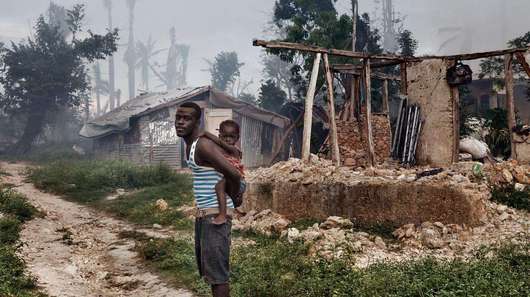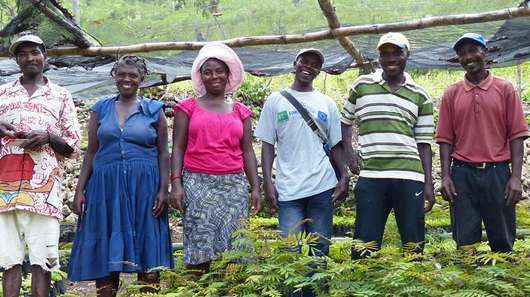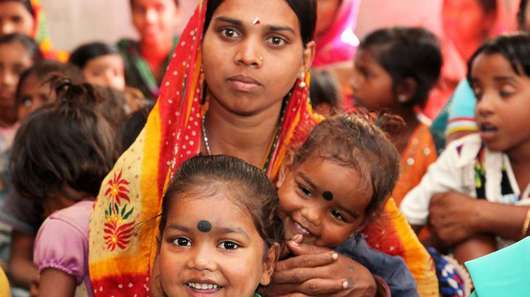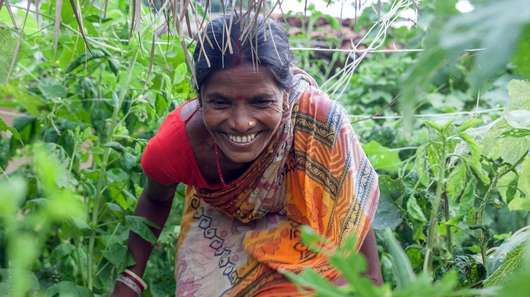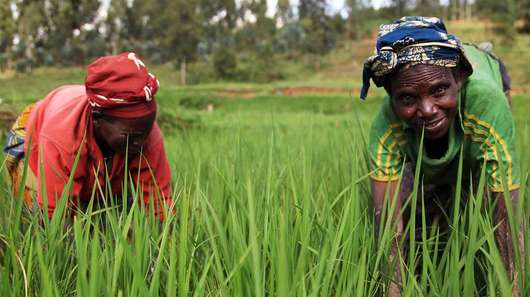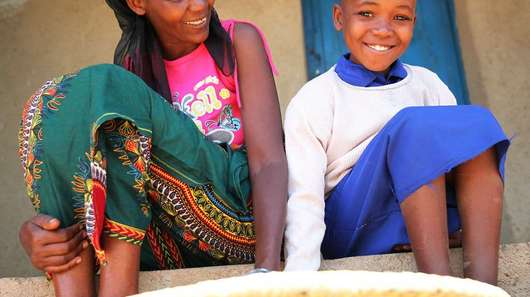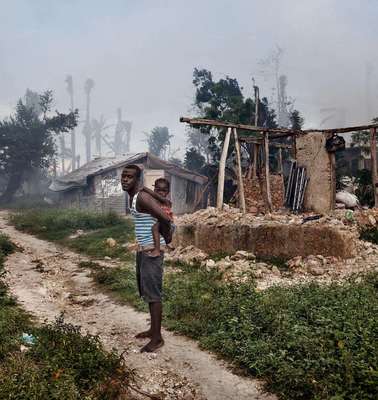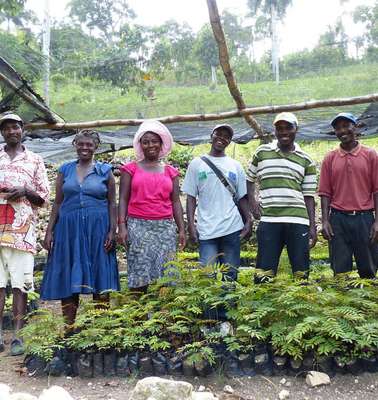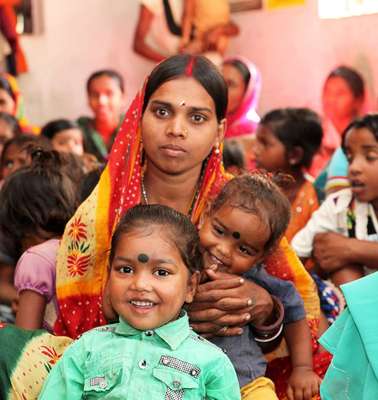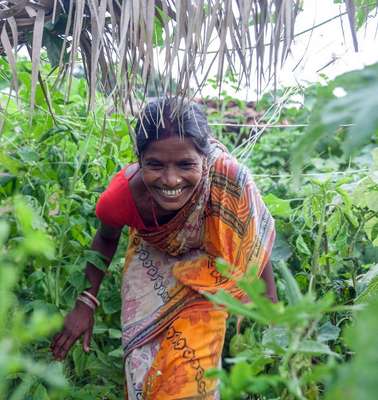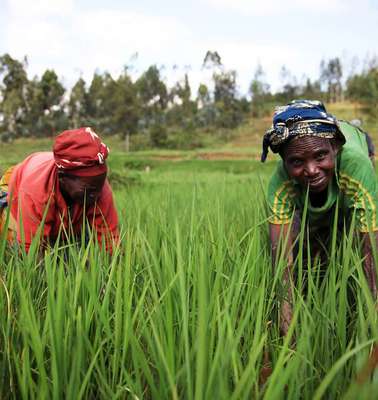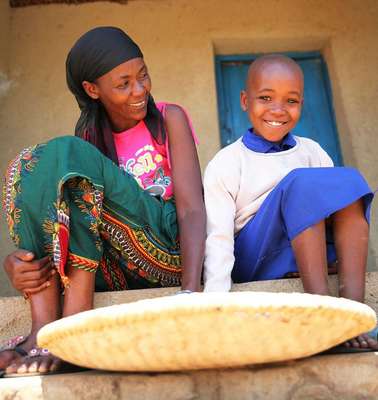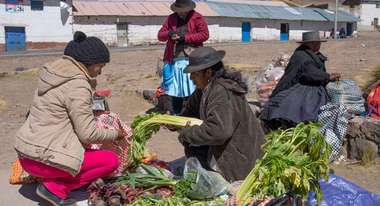Facts & figures of Welthungerhilfe in 2017.
The World Is Getting Better
For the first time in history, humanity is in a position to end hunger. Does that have something to do with the successes of development cooperation? Till Wahnbaeck believes that it does. Here are his reasons.
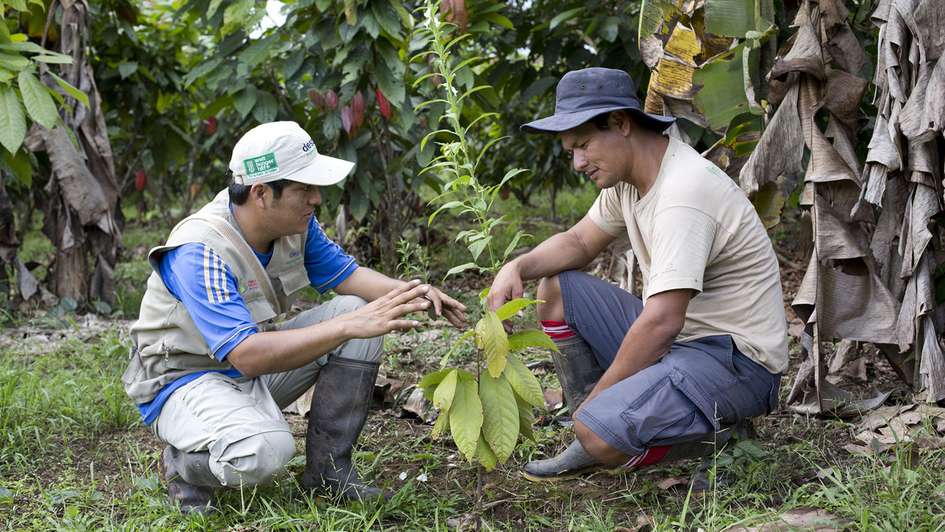
Here in Germany, many people think that development assistance is not effective: The regimes are too corrupt, population growth is too rapid, and there are too many civil wars that destroy any gains made. And while there are 815 million people going hungry worldwide, a painting changes hands for almost half a billion US dollars; a house in London is sold to a billionaire for 200 million euros; and, according to Oxfam, the richest 1% of the world’s population possesses more wealth than the other 99% put together.
And yet, I believe that the world is getting better. For the first time in the history of humanity, ending hunger is a realistic goal; we can be the generation that does so. I once read an interesting definition of optimism: An optimist is not someone who believes that everything will turn out well but rather someone who does everything possible to make things turn out well.

For the first time in the history of humanity, ending hunger is a realistic goal; we can be the generation that does so.
Dr. Till Wahnbaeck Former CEO of WelthungerhilfeOptimism does not mean that the world is good. It means that it is getting better. Both statements are true: The world is bad, and it is getting better. Or, in the words of my community pastor from Hamburg, Martin Hofmann: Desperation is easy; hope takes a little effort.
The World Has Gotten Better:
- Two hundred years ago, nearly nine of every ten people in the world lived in extreme poverty; today, it is only one in ten.
- According to Welthungerhilfe’s Global Hunger Index, rates of hunger have decreased in all countries surveyed during the past 15 years, for example by an average of 30% throughout Africa.
- Since Welthungerhilfe was founded more than 50 years ago, the child mortality rate in developing countries has fallen from above 20% to below 5%.
Naturally, each child's death is one too many. In a world of plenty, every instance of a person forced to live in poverty is truly a travesty. Nonetheless, there are great successes and examples of the world getting better.
Global Success Despite Population Growth
But that is only because of China’s development, and population growth will soon consume these successes in any case—this is often the reflexive answer to such a world view. However, the fact is that a similar, if less dramatic, picture can be seen outside of China as well. In 1981, 29% of the world’s population lived in extreme poverty; by 2013, this figure had decreased to around 12%, and before you ask: These figures already exclude China, otherwise the decrease from 42% to less than 11% would be even more drastic. The trend continues: Today, this figure—including China—is under 10%.
And although population growth is a real challenge, birth rates have been falling throughout the world since the 1980s. The trend is the same the world over: When incomes rise and children are no longer the only form of pension planning, birth rates fall. With fewer children dying, the population grows for a while. However, birth rates fall after a few years, and a new equilibrium is reached.
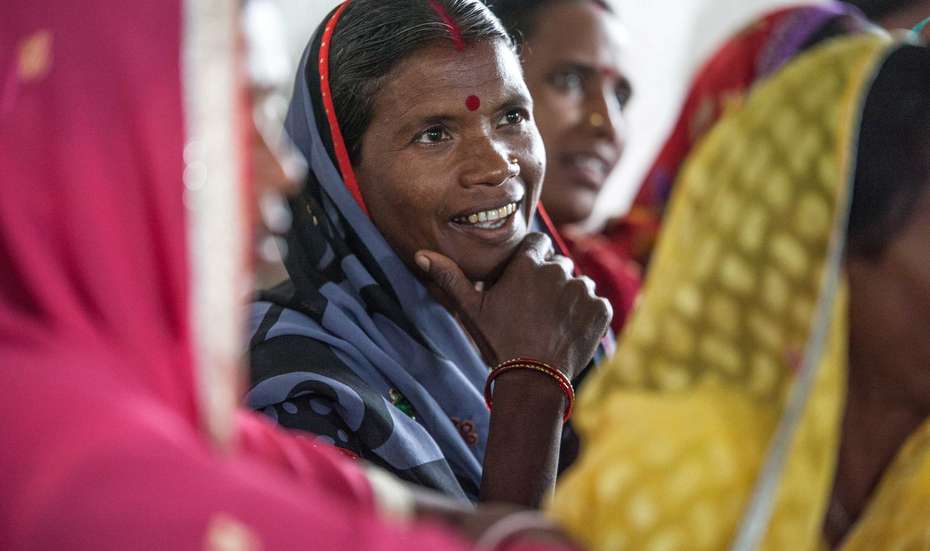
Development Cooperation Has Contributed to Reducing Poverty
Where can we find the source of this progress? Firstly, we find it with people who take their fate into their own hands and demand a place at the table. However, it can also be found with development-focussed governments and effective institutions that have taken up the cause of fighting poverty, and it is precisely here that development cooperation has played an important role and contributed to these successes.
Of course, it is no cure-all and should not be swamped with excessive expectations, but it works—under certain conditions.
First of all, success depends on whether the objective is humanitarian assistance, reconstruction, or long-term development cooperation. For an aid organisation, the priority during crises is to save lives. Every child who does not starve to death is a credit to our work. However, our goal is help for self-help. Real, lasting success for us is, for example, if improvements are made in the food and nutrition situation and are not lost when we withdraw.
It often takes years for positive effects to become apparent. It is in looking at longer periods of time that successes become visible. According to the FAO, the number of undernourished people rose by 38 million to 815 million from 2015 to 2016. Over the past 30 years, however, the number of people suffering hunger has been halved.
Areas of Focus
This is how Welthungerhilfe is striving for greater social justice, ecological sustainability, and political participation:
- Connecting emergency aid and disaster relief with a long-term development perspective
- Effecting a long-term change of dietary habits in favour of varied and healthy nutrition
- Promoting socially and ecologically-sustainable structural change in rural areas
- “Localising” development, i.e. utilising local knowledge and decentralising the organisational structure
- Raising awareness among and empowering people who are engaged in the fight against hunger and poverty
- Influencing political and economic framework conditions
- Setting an example in terms of transparency and accountability
However, it is not always easy to measure successes. For a long time, there was no systematic assessment of aid activities’ long-term impact, e.g. whether people’s lives actually improved after the construction of a well or a school. This has undergone a fundamental change. For over 25 years, there have been five central criteria by which Welthungerhilfe, too, orientates itself and which help to compare diverse programmes, including relevance (Are we doing the right thing?), efficiency (Are goals being achieved economically?), and sustainability (Is the impact sustainable?).
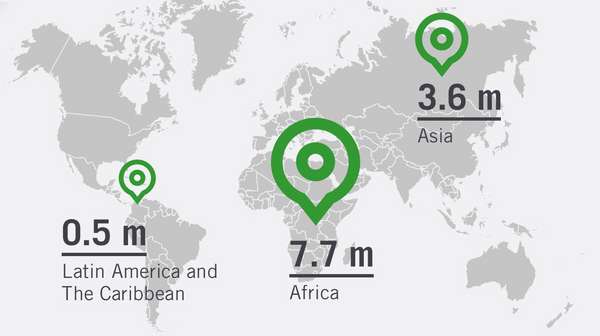
However, no matter how good a given organisation’s programmes might be, political and economic actors also influence the impact. Development cooperation is more successful with the right framework conditions. For example, the political will to implement development goals must be present in the countries in question, policies must focus on the poorest people and offer them some support, institutions such as the tax or legal systems must be effective, and citizens must actively participate and demand reforms.
Not only local changes determine the success of development cooperation. Changes to political framework conditions are necessary on the international level as well in order to fight the root causes of poverty and hunger. Success here may be, for example, if the EU and the German federal government implement greater political coherence regarding questions of trade, agriculture, and development cooperation, thereby helping to realise the right to food.
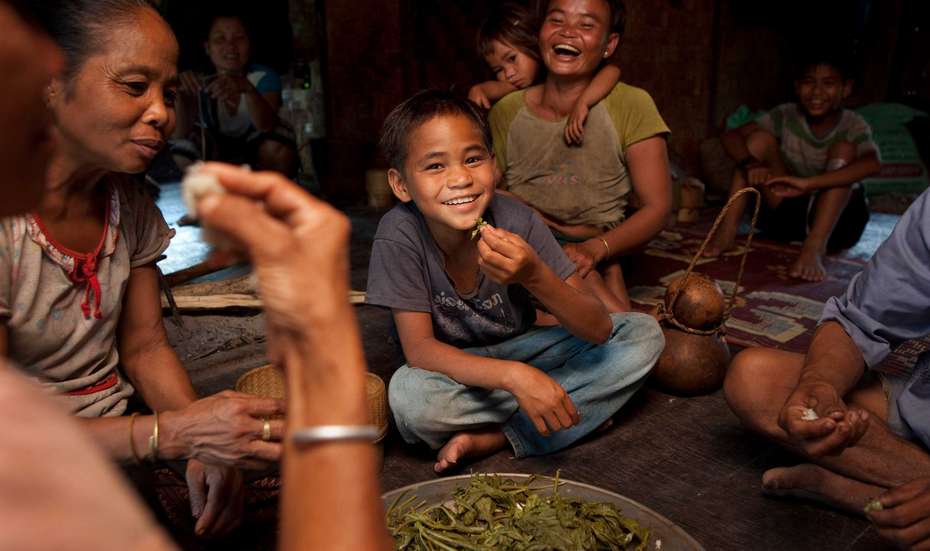
Development Assistance Produces Success—If Framework Conditions Change
The bottom line is: The world is not good, but it is getting better. Development assistance works, but only if the framework conditions change too. We need more fairness between north and south in terms of trade; between city and country in terms of rural development investment that African countries promised in the amount of 10% but which figure they are still far from reaching; between young and old with jobs for the 20 million young Africans who are joining the labour market every year; and between people and the environment, since we in the north act as though there were four planets instead of the one on which we all live. The answer to questions about corruption, population growth, and suffering in the world is always the same: Development.





